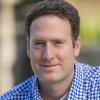Pope Francis, head bowed low, first asked for the prayers of Catholics packed into St. Peter's Square on March 13 before conferring his own papal blessing. This simple gesture sent a powerful introductory message to a morally diminished church in need of profound spiritual renewal.
By choosing the name Francis, a cardinal who traded in the archbishop's palace in Buenos Aires, Argentina, for a modest apartment aligned himself with a man who embraced radical poverty and a humble spirituality. In his first press conference with international journalists, the pope said he was inspired to take the name because Francis was "a man of the poor," a "man of peace" and a man who "loved and cared for creation." It's too early, of course, to say what this 266th papacy will become. But if a narrative arc is set in the first acts, this unfolding drama is worth watching closely.
This soft-spoken Argentine with a theologian's mind and a pastor's common touch has a history of shunning the worldly trappings of ecclesial power, criticizing hypocritical clericalism and defining the church as the people of God that bishops are called to serve. This is a solid foundation for rebuilding a church crumbling under the rot of clergy child abuse, an exodus of disillusioned Catholics, and the dysfunction of a scandal-plagued Vatican bureaucracy. "Preach the Gospel always, and if necessary use words," Francis of Assisi instructed eight centuries ago -- old wisdom still ripe with meaning today.
If past is prologue, Jorge Mario Bergoglio will not be shy about asking more from those who represent the church. He's encouraged clergy to come down from exalted positions to encounter the messiness of a flawed world. Catholics who prefer a smaller, "purer" church that defensively hunkers down with an air of superiority will find no friend in Bergoglio. In an interview just last month, he urged the church to avoid the "spiritual sickness" of being "wrapped up in its own world ... If I had to choose between a wounded Church that goes out onto the streets and a sick, withdrawn Church, I would definitely choose the first one," he said. In a powerful homily in September, he criticized priests for refusing to baptize infants born to single mothers and compared them to modern-day Pharisees whose puritanical judgment is driving "God's people away from salvation."
Pope Francis has also taken aim at a global financial system that puts profits before human dignity. As a cardinal speaking to a gathering of Latin American bishops in 2007, the new pope called the inequalities that arise from the vast gap between rich and poor "a social sin that cries out to heaven." During the Argentine economic crisis a decade ago, he was a critic of the economic austerity positions touted by the International Monetary Fund and other international financial bodies. While the cardinal was an opponent of liberation theology embraced by many Jesuits in Latin America, he was not timid about offering a pointed critique of structural conditions that exacerbate poverty and social disparities. In a statement he helped prepare as head of the Argentine bishops' conference, Bergoglio and his fellow bishops highlighted the "negative consequences of globalization and the tyranny of markets." In this skepticism of unfettered capitalism, Pope Francis is in line with Benedict XVI, who warned about the "scandal of glaring inequalities" between the rich and poor and called for a more just distribution of global wealth.
Catholics who will judge this pontificate by whether sweeping changes are made to church teachings on birth control, homosexuality and women's ordination are likely to be disappointed. Pope Francis shares the same conservative theology on these issues as almost all of the cardinals appointed by Benedict XVI and the late John Paul II. But Pope Francis could go a long way toward bridging the wide chasm that exists between the hierarchy and many Catholics on hot-button issues if he can at least strike a different tone. Instead of comparing civil same-sex marriage as a threat to "the future of humanity itself," as Benedict did, the new pope should recognize this apocalyptic, degrading language has no place in a church guided by compassion and respect for human dignity.
There is both hope for a different style and reason to be skeptical that Pope Francis understands this. As a cardinal, Bergoglio compared same-sex marriage to the work of the devil and called it a "destructive attack on God's plan." At the same time, the new pope's authorized biographer said this extreme position came after intense pressure from conservatives who opposed the cardinal's initial advice for the church to support gay civil unions. Alex Freyre, executive director of the Buenos Aires AIDS Foundation, wrote on his Twitter account last week that Pope Francis "knows that gay marriage isn't the end of the world or the species." His official biographer told The Associated Press that "Bergoglio is known for being moderate and finding a balance between reactionary and progressive sectors."
One man alone can't renew a global church of 1.2 billion Catholics. Pope Francis will need a stiff wind at his back stirred up by priests, nuns and lay Catholics who love our church and realize the treasures of a 2,000-year faith tradition must be held in creative tension with a modern, pluralistic world. This is a difficult task. It will require the collective work of the pilgrim people of God, now led by a humble man who asks us for our prayers.
[John Gehring is Catholic program director at Faith in Public Life in Washington, D.C.]


